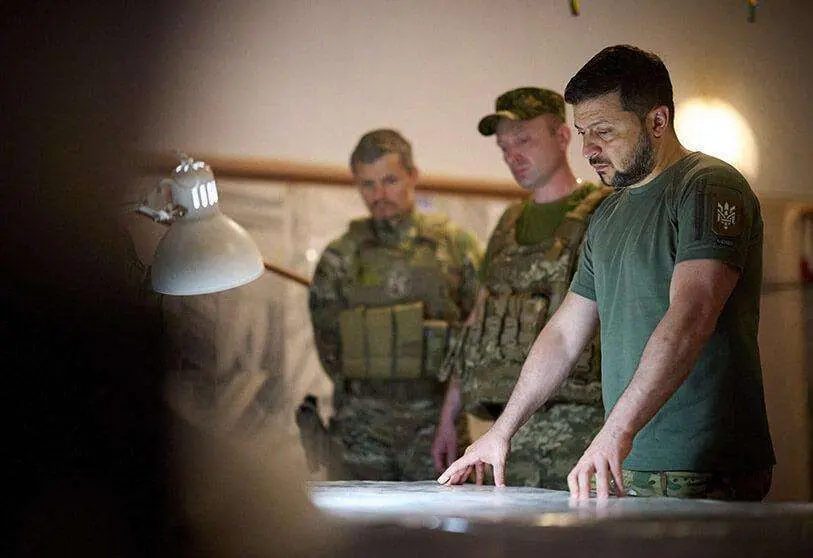Europe on the brink of World War III

It finally happened what was so feared: that a missile, which is yet to be determined whether it is Russian, would fall on NATO territory and kill people. And it happened while thousands of miles away in Bali, Indonesia, 17 G20 heads of state and government were dining by candlelight to lively music.
With them are their Foreign Ministers, some even took their respective Defence Ministers with them; and there are also more than 3,300 delegates and business people from 65 countries.
The news has almost taken them to sleep, after a day of work at the annual G20 meeting on 15 and 16 November, with the meeting between US President Joe Biden and his Chinese counterpart, Xi Jinping, as a snack. Everyone spoke in unison in favour of peace and rejected any nuclear threat. The declaration of intent includes several points in which all members of the multilateral club practically put pressure on Russian dictator Vladimir Putin to seek an end to the war at a peace table.
One that the Ukrainian leader himself, Volodymir Zelenski, fears could not take place without the endorsement and guarantee of the United States and China, on paper.
On Monday, after the meeting between Biden and Xi Jinping, and the withdrawal of Russian troops from Kherson at the weekend, there was a glimmer of hope that the war could be brought to a negotiation stage.
But Putin is Putin and the tyrant has no dignified way out of this invasion that he himself brought about. There is not a single loophole and the riddle remains, how on earth will this atrocity end? And all the more so with "General Winter" already upon us in Europe.
The events are chilling: while Biden, Jinping, Ursula von der Leyen, Charles Michel, Emmanuel Macron and many other NATO leaders dine frugally in Bali, in the Polish town of Przewodow, in the Lublin region, it is not known whether one or two missiles have fallen on a farm and killed two people. Two people dead in Poland, NATO territory, which Biden swore he would defend from Russia from the first centimetre, Article 5 of the Transatlantic Alliance no less.
The Polish authorities have reacted by convening an urgent meeting of the Council of Ministers' Commission for National Security Affairs. Experts have been sent to the Polish town where the explosions and deaths occurred, very close to the Ukrainian border, to take evidence and determine what happened. If it is confirmed that one or two missiles were responsible, it will be necessary to have the evidence to determine whether Russia or Ukraine is responsible.
Of course, it will have to be proven whether it was a deliberate attack on Poland or a miscalculation of one or two missiles. In Spain, military intelligence sources consulted are urging caution in the face of disinformation. They suggest being cautious until all the evidence is in and responsibilities are established.
People in Europe have held their breath with a pit in their stomachs in fear that this is a deliberate and prepared attack by the Kremlin using as bait, the sudden and voluntary withdrawal of Russian troops from Kherson (territory that Putin ordered to be placed within the Russian constitution and said he would defend as his own) and under the tessitura of a group of leaders thousands of miles away from their respective countries.
Putin's horrific attack in Ukraine has unsettled: his troops have launched a hundred missiles at 14 points in the Ukrainian nation, destroying mainly energy and electricity infrastructure. Kiev has been bombed again.
The next few hours will be crucial to determine whether these are indeed Russian missiles; who is interested in escalating the conflict when the United States, China and Ukraine have opened a window for a negotiating table and peace. One or two missiles lost or with calculated effect? Does Putin want to negotiate or is he already being betrayed within his circle because they believe he should be tougher in his attacks, thereby pushing Russia to show more muscle? Who really wants the war to continue and who wants to negotiate peace?
Jens Stoltenberg, head of NATO, has been very cautious on his Twitter account, starting with the hours it took him to clarify his position on what happened: "I spoke with President Duda @prezydentpl about the explosion in #Poland. I offered my condolences for the loss of life. #NATO is monitoring the situation and Allies are consulting closely. Important that all facts are established".
Spoke with President Duda @prezydentpl about the explosion in #Poland. I offered my condolences for the loss of life. #NATO is monitoring the situation and Allies are closely consulting. Important that all facts are established.
— Jens Stoltenberg (@jensstoltenberg) November 15, 2022
For the time being, Poland has ordered its troops to be on alert, will reinforce its borders with additional military personnel, and will activate Article 4 of the Transatlantic Alliance to conduct a series of consultations with its allies; it does not imply that it will respond, nor an imminent move to Article 5 of the Common Defence.
From Russia, the Defence Ministry denies it is its missiles and any involvement and condemns "the act of deliberate provocation" and the Pentagon says it has no reliable information. The next few hours will undoubtedly be crucial to find out whether the bombs were a miscalculation or another Pearl Harbor, this time not at the weekend but taking advantage of the distraction of the G20 Summit.

